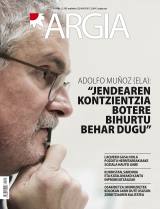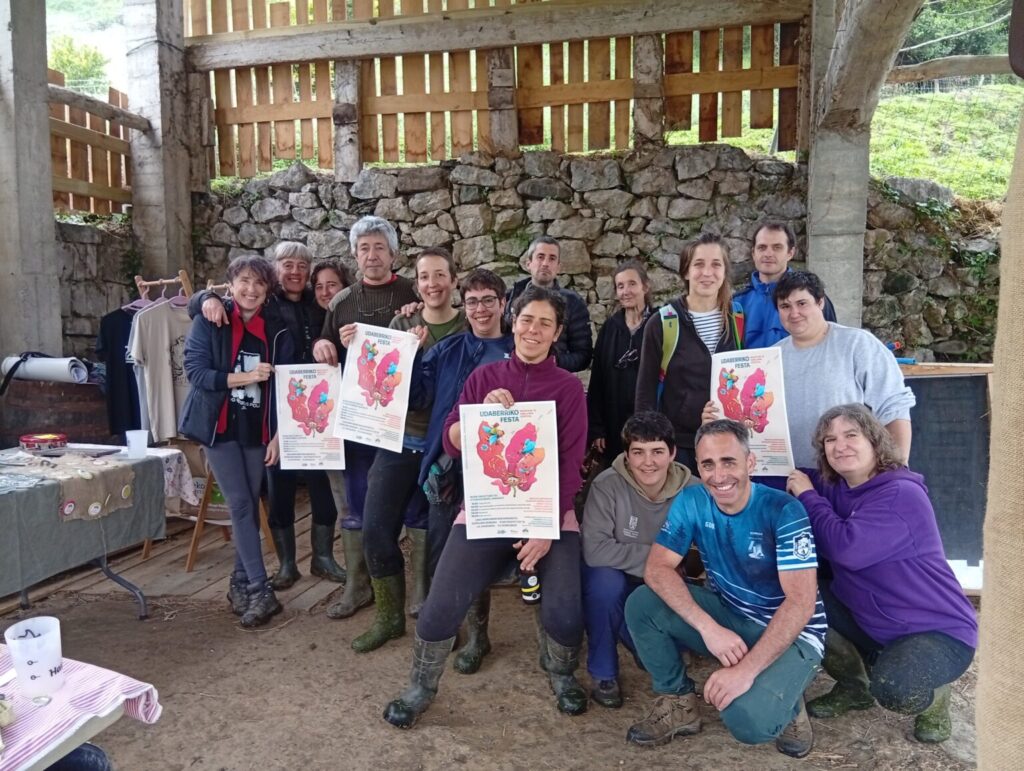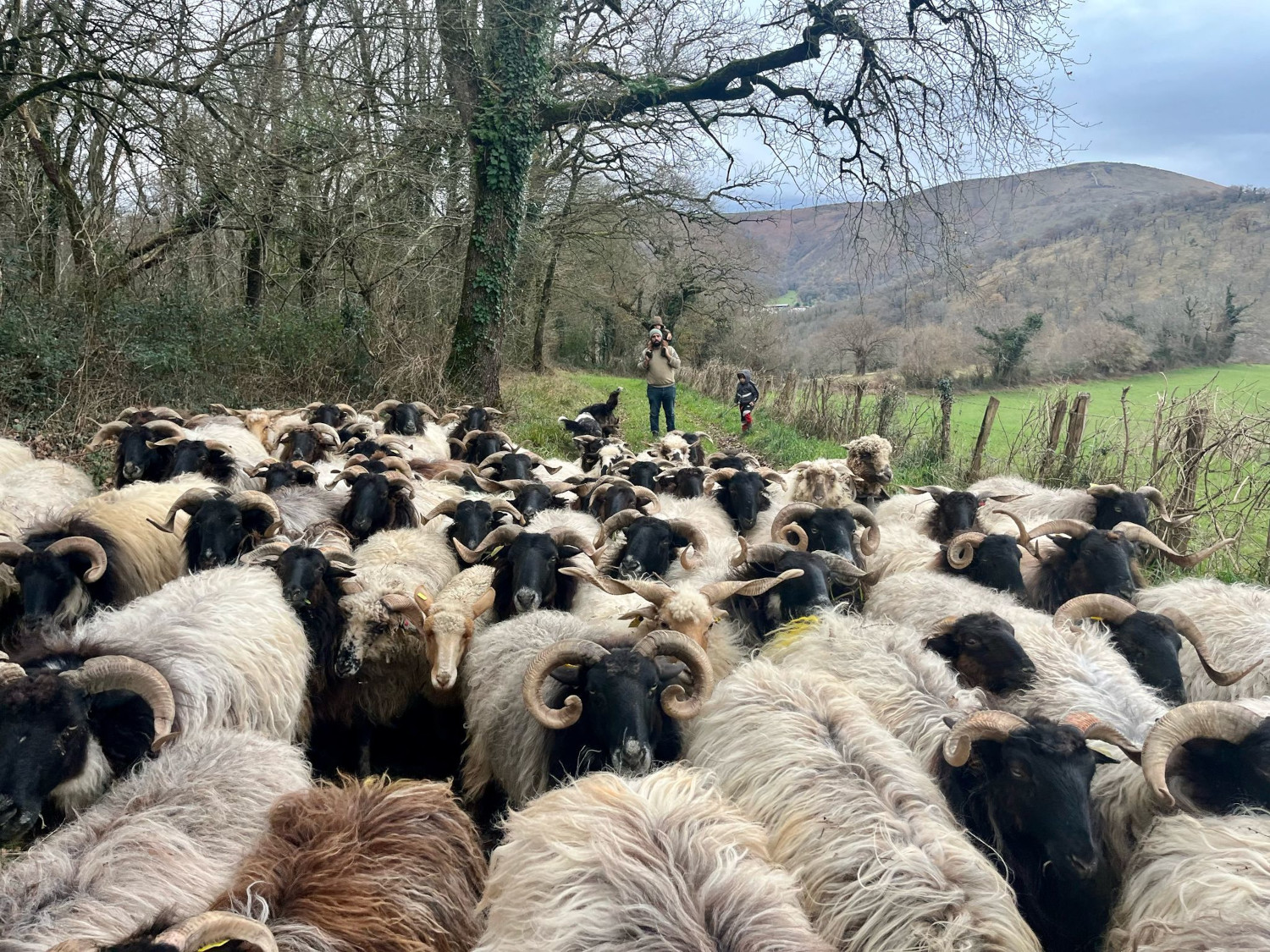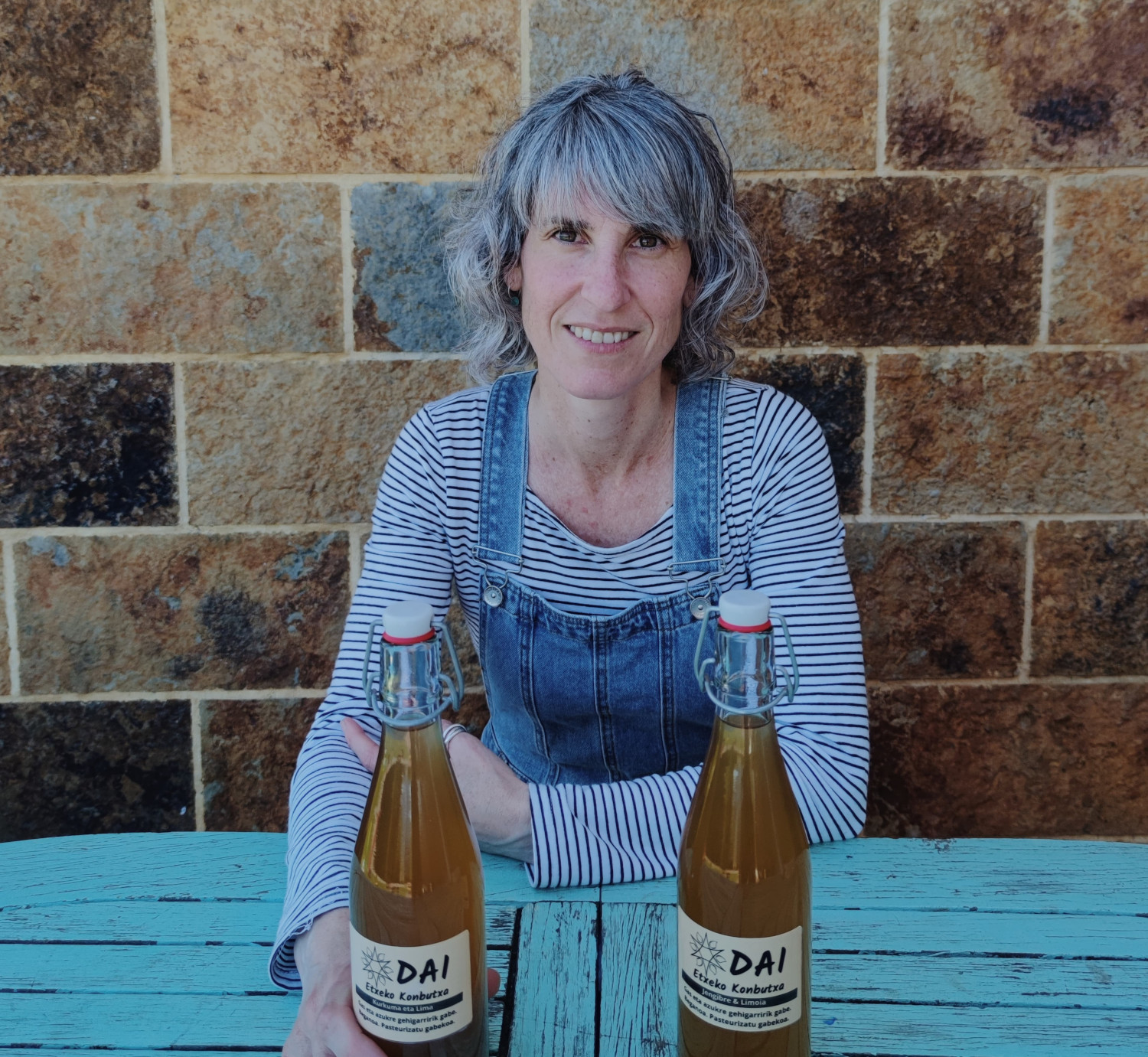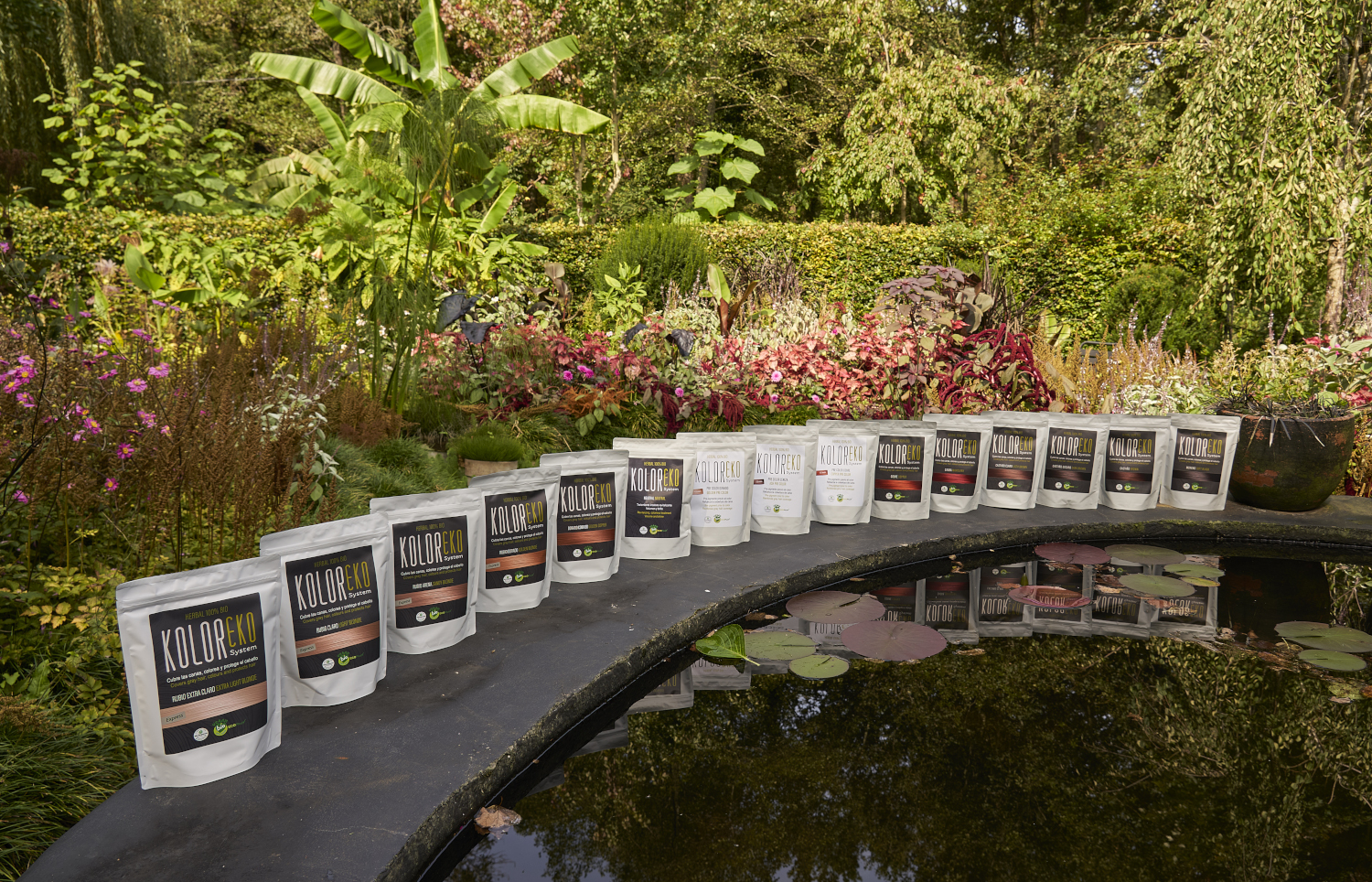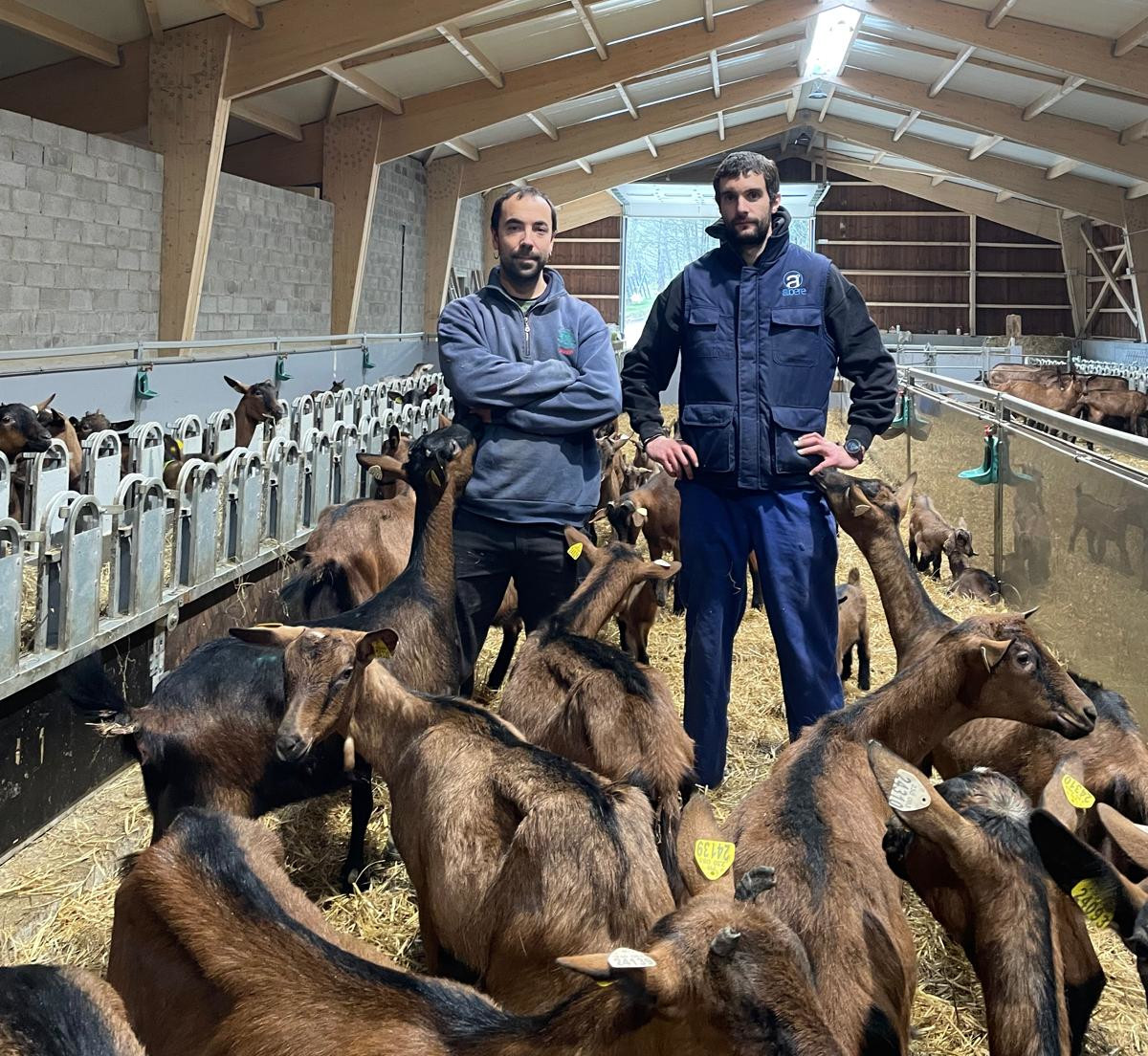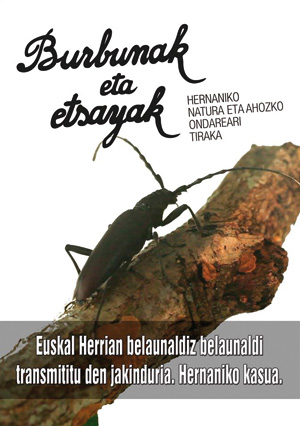
“Normally, when we start collecting, it’s because we feel something is going to lose. There is a tendency to bring the dialects together, and the Burbunak and Etsayak project is also situated in that context.” The Society of the Basque Country Dobera and the Society of Sciences Aranzadi began the project with the objective of collecting the oral heritage on the nature of Hernani. In addition to the loss of the Basque dialects, the philologist Eñaut Agirre (Dobera) and Iñaki Sanz Azkue (Aranzadi) of Hernani discovered that the knowledge and wisdom of nature were being lost. Thus, the documentary began with the camera Joxean Ruiz and the editor Jon Mari Beasain. If the film was introduced in the spring, the goal is to make a book with the material collected for the future.
On the value of dialects
At a time when there is a lot of talk about linguistic ecology, Agirre believes that the same should be considered within the Basque Country: “Each dialect contributes a lot to our language, so one of our objectives was also to raise awareness and value the importance of local dialects.” In this sense, the title also goes: Burbuna and etsaya are two words (in the photo) used in Hernani to designate the same bug.
Broad vocabulary of nature
In the interviews conducted, Agirre and Sanz Azkue have collected the names of over 350 species of animals and plants. Many of these species also have more than one name, which varies from one farm to another. “A bird, for example, has six names on Hernani,” Agirre explains. The connection between nature and language is evident, according to the philologist: Those who have a closer relationship with nature, those who have more knowledge, have a rich vocabulary to express what they see.
Today, it is clear that we live closer to the city and further away from nature. “They used to see plants and animals every day. Now we have another lifestyle and therefore we use another dictionary,” explains Dobera, a member of the association.
Contrary to what one might think, the authors of the project have seen that many young people still have “amazing knowledge” and have felt a great interest in recovering all that vocabulary. There is therefore a future. As bertsolari Maialen Lujanbio said about the project, “when all the birds are birds, all the trees and all the insects are bugs” it is nice to gather this wisdom. The more you know, the more you live, because we love the environment!
Duela lau urte abiatu zuten Azpeitian Enkarguk proiektua, Udalaren, Urkome Landa Garapen Elkartearen eta Azpeitiako eta Gipuzkoako merkatari txikien elkarteen artean. “Orain proiektua bigarren fasera eraman dugu, eta Azkoitian sortu dugu antzeko egitasmoa, bere izenarekin:... [+]
Donostiako Amara auzoko Izko ileapaindegi ekologikoak 40 urte bete berri ditu. Familia-enpresa txikia da, eta hasieratik izan zuten sortzaileek ile-apainketan erabiltzen ziren produktuekiko kezka. “Erabiltzaileen azalarentzat oso bortzitzak dira produktu gehienak, baina... [+]
Ubidekoak (Bizkaia) dira Imanol Iturriotz eta Aritz Bengoa gazteak. “Lagunak gara txikitatik, eta beti izan dugu buruan abeltzaintza proiektu bat martxan jartzeko ideia”, azaldu du Iturriotzek. Nekazaritzari lotutako ikasketak izan ez arren, baserri munduarekin eta... [+]
Iruñean bizi ziren Iñaki Zoko Lamarka eta Andoni Arizkuren Eseberri gazteak, baina familiaren herriarekin, Otsagabiarekin, lotura estua zuten biek betidanik. “Lehen, asteburuetan eta udan etortzen ginen eta duela urte batzuk bizitzera etorri ginen”, dio... [+]
Gipuzkoako hamaika txokotatik gerturatutako hamarka lagun elkartu ziren otsailaren 23an Amillubiko lehen auzo(p)lanera. Biolur elkarteak bultzatutako proiektu kolektiboa da Amillubi, agroekologian sakontzeko eta Gipuzkoako etorkizuneko elikadura erronkei heltzeko asmoz Zestoako... [+]
Emakume bakoitzaren errelatotik abiatuta, lurrari eta elikadurari buruzko jakituria kolektibizatu eta sukaldeko iruditegia irauli nahi ditu Ziminttere proiektuak, mahai baten bueltan, sukaldean bertan eta elikagaiak eskutan darabiltzaten bitartean.









